The Yardbirds: ‘Heart Full of Soul’—Jeff Beck’s Guitar Was the Star
by Colin Fleming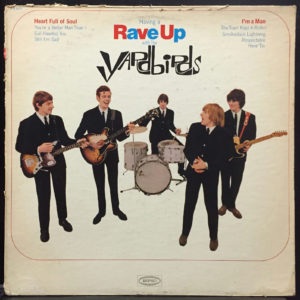 There’s no musical medium more associated with a single instrument than rock and roll is with the guitar. It was there as the foundational element from the earliest days, and should it ever leave us, we’d speak about how rock and roll is no more. Even someone like Elvis Presley, who wasn’t exactly known for his guitar playing, became a living embodiment of the instrument. One saw or heard Presley, and what one then wanted more than anything was a guitar.
There’s no musical medium more associated with a single instrument than rock and roll is with the guitar. It was there as the foundational element from the earliest days, and should it ever leave us, we’d speak about how rock and roll is no more. Even someone like Elvis Presley, who wasn’t exactly known for his guitar playing, became a living embodiment of the instrument. One saw or heard Presley, and what one then wanted more than anything was a guitar.
The second half of the 1950s was awash in notable guitar sounds, from Bo Diddley and his shave-and-a-haircut rhythms to Eddie Cochran’s stair-bounding riffs to Cliff Gallup’s mad solo-dashes with Gene Vincent to Lowman Pauling’s stinging, take-a-leap leads with the Five Royales. And yet, it was the song, the persona, the beat—or a combination of all three—that listeners tended to focus on, what was discussed, thought most memorable. The guitar was a means to a joyous end. A celebrant rather than the celebration.
Chuck Berry was a master of the instrument who has still not been given the credit he deserves on this score because said prowess was overshadowed by songs that were equal parts short stories, lyrical poems, odes of America—both the good and bad sides. Johnny B. Goode may have lived by the railway tracks, but it was Berry’s unaccompanied guitar breaks that really sent him on his journey. Buddy Holly tore it up on the likes of “Oh Boy!” and “That’ll Be the Day,” but those solos were sublimated to the phenomenon of these songs existing and rock and roll itself.
Post-war British kids fell hard for these American rock and roll pioneers, got—or made—themselves guitars, attempted to play those same songs, and in some instances, tried to write similar songs of their own. Very few of these young men—along with a few young women—thought that a trailblazing guitar technique was a means to rock and roll stardom and that you’d inspire others like you had been inspired by how well you played the instrument. There were groups that specialized in instrumentals, but this wasn’t the same as tearing into the break of a song like you were rock and roll Paganini gone nuclear.
All of this changed when the Yardbirds—spearheaded by their virtuoso-in-residence, Jeff Beck—took a new direction, and offered an alternative route to other musicians, with the release of their single “Heart Full of Soul” on June 4, 1965.
Beck had recently joined what would now become one of rock’s all-time great innovating units following the departure of Eric Clapton in March. We cannot overstate the impact that the Beck Yardbirds had on much of the music to follow. You could make the case that no band in the medium’s history had more of a direct influence on others, and a lot of that starts with “Heart Full of Soul.”
The initial plan had been to feature a sitar player performing the Graham Gouldman-composed song’s signature, Eastern-inflected riff. This is around the same time that the Beatles were working on “Norwegian Wood (This Bird Has Flown),” another number that featured a sitar but wouldn’t come out until the end of the year. The Kinks would record their Eastern-tinged “See My Friend” in May, with the cut appearing in late July, but in these years of the middle 1960s, the Yardbirds excelled at getting to places first.
Related: Our interview with the song’s composer, Graham Gouldman
They recorded “Heart Full of Soul” with the sitar player in tow, but that riff sounded thin. For the song to work, the riff had to be whip-like, but with some heft and bottom. The sitar wasn’t cutting it. Jeff Beck suggested alternate plan: to have his guitar basically take on the sitar’s role and practically incise those grooves of the riff into the air such that they’d forever remain there.
Beck would have flashier, harder-to-play sequences with the Yardbirds; his solos on “Shapes of Things” and “Happening Ten Years Time Ago,” for instance, can lay a claim as being the finest that anyone has played in the genre—but “Heart Full of Soul” is arguably the first instance in which the guitar, meaning, virtuosic playing, was the star of a pop hit.
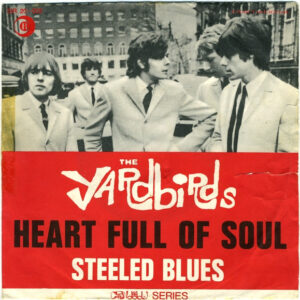 As a piece of music, “Heart Full of Soul” is akin to a mini-concerto. Our focus on the guitar—those jagged-edge coils of sound—never wavers, which also makes us paradoxically more attuned to Keith Relf’s signature, sinewy, lead vocal.
As a piece of music, “Heart Full of Soul” is akin to a mini-concerto. Our focus on the guitar—those jagged-edge coils of sound—never wavers, which also makes us paradoxically more attuned to Keith Relf’s signature, sinewy, lead vocal.
Relf has always caught flak as a singer, but Beck, speaking years after the fact, got it right: For energy, that blueswailing that went beyond mere blueswailing, Keith Relf was the man. And that voice partnered with Beck’s guitar in a manner unlike any other vocal-fretboard union. Having heard Relf and Beck together, you can scarcely imagine anyone other than Relf singing “Heart Full of Soul” with Beck blasting away.
Related: Sorting out the Yardbirds’ convoluted history
It’s ironic that Clapton left the Yardbirds on account that he thought they were becoming too commercial with the first big hit, and the only one he was a part of, “For Your Love,” which itself has Eastern leanings. The Yardbirds never felt particularly English—as the Kinks were extremely so—or like a band with Americanized predilections. We encounter Eastern modalities, but a Yardbirds blues, which itself became a form of Yardbirds proto-metal, had an aspect of the sidereal to it. Beck was both an ancient player—with the idea of sounds like those in “Heart Full of Soul” as always existing, incised in space and time—and an astral one. Clapton departed, and this new iteration of the band immediately got far out.
These birds were crafty, though. In innovating, the Yardbirds also made sure not to leave listeners behind. “Heart Full of Soul” was poppy enough to reach the top 10 of the U.K. charts, and you can still hear it playing today in supermarkets. It’s not very classifiable. You wouldn’t call it pop outrightly, but neither is it solely rock, or rock and roll—there being a sort of difference—or rhythm and blues or metal. A unique cut.
Beck’s solo recasts, by recontextually reprising, the song’s melody. In other instances, that can be an indication of a dearth of ideas on the soloist’s part. But here, it’s a form of inspired restraint. Plus, there’s Beck’s tone. No song has a guitar tone like “Heart Full of Soul.” The tone is distorted and yet somehow lucid at the same time. Staccato and legato. Having arrived at the solo, Beck leans into what has been building thus far. The effect is like a melody in relief, and a simultaneous build-up and release of tension.
Watch Jeff Beck demonstrate how he created the “Heart Full of Soul” riff
After Beck’s departure, and with his own guitar tone, Jimmy Page adopted the same approach on the solo in concert. This wasn’t a case of playing a hit as those in attendance may have wished to hear it. After all, the Page Yardbirds were covering the Velvet Underground at their gigs. Yardbirds-ian radicalism was its own thing, with its own rules, or lack thereof.
Watch: Scroll ahead to 9:45 in this 1967 clip to see how Jimmy Page handled “Heart Full of Soul” in the post-Beck Yardbirds
Musicians heard “Heart Full of Soul” and were awoken to opportunities. You could be a daring, stylist of a player on your instrument and have commercial success. The solo needn’t be less important than the chorus. This was a single of sonic liberation. A song that gave future fretboard stars further reason to practice, to conceive of approaches that weren’t as readily in evidence up until that spring.
Just as the song’s singer has a message for the woman he loves, the Yardbirds had a message of their own for everyone within the reach of Beck’s guitar: You can do anything you’re able to with your guitar. So have at it.
Watch the Yardbirds perform “Heart Full of Soul” live in 1965
The Yardbirds’ recordings are available in the U.S. here and in the U.K. here.

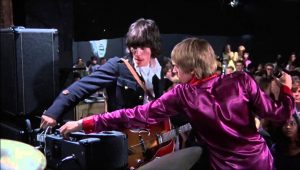
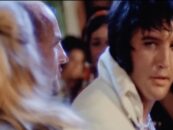
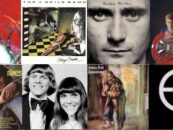
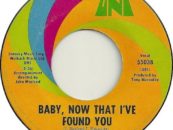
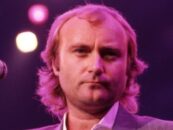

2 Comments so far
Jump into a conversationGreat article. Thanks, Colin!
I also like the slower version of Heart Full of Soul by Chris Isaak. When I get my telecaster out this is a song i am comfortable with.
Always go back to the solo Beck Truth & Beck’ola cd’s.